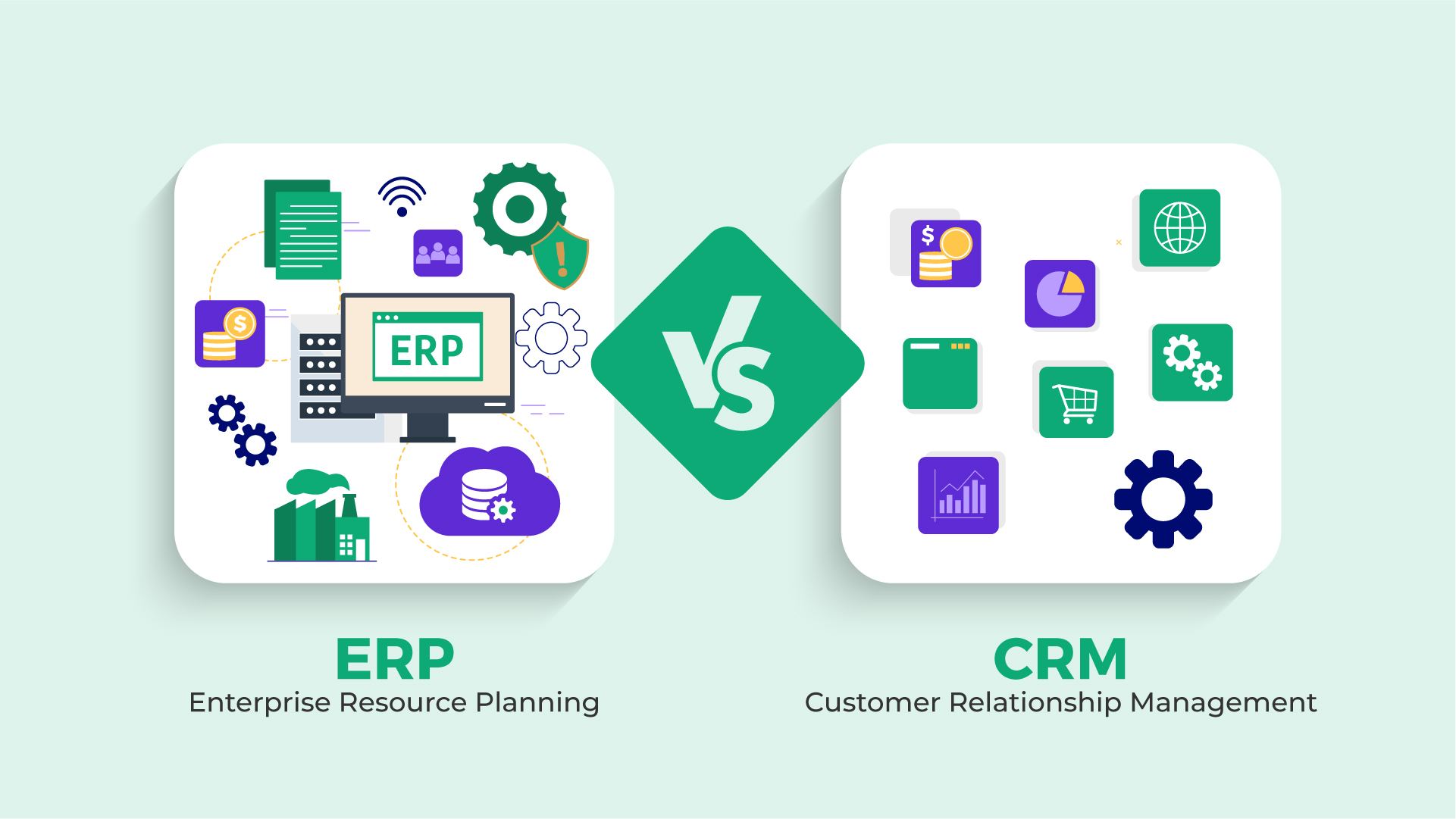It’s easy to see how businesses can confuse enterprise resource planning (ERP) and customer relationship management (CRM) systems. CRM often forms part of your ERP software package, and both are used to streamline and automate business processes. Both touch multiple departments, serve as vital data repositories, and may even be built on the same platform. However, they are far from interchangeable.
ERP software connects financial and operational data and systems to a central database, while a CRM manages only customer relationships and their interactions with a business. In this article, we’ll unpack the differences between ERP and CRM software, as well as mention some benefits, to help you determine which is the best option for your business.
What is a CRM?
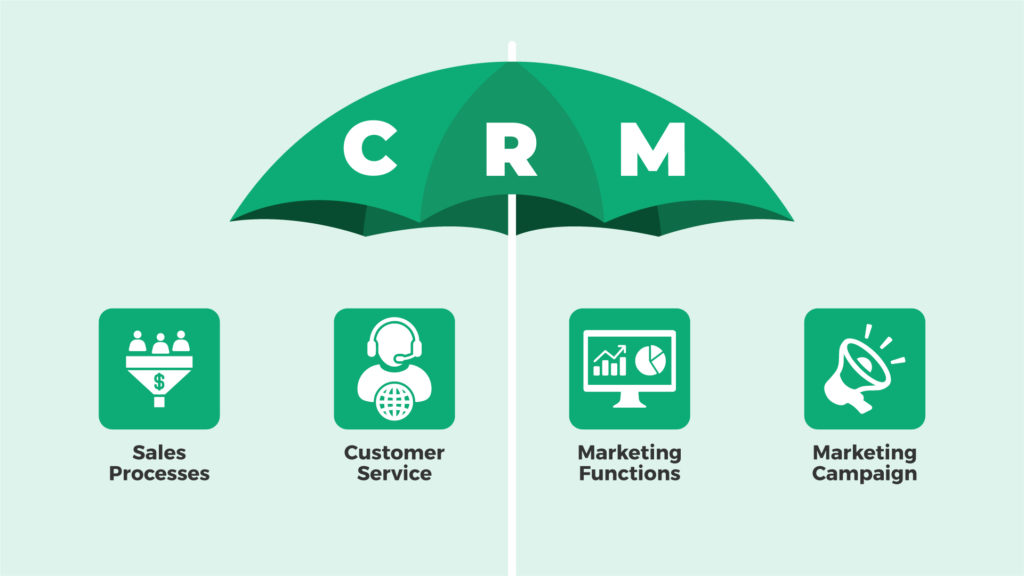
CRM software manages the many different ways customers interact with a business. The earliest CRM software solutions were developed with sales teams in mind, but the tools soon expanded beyond sales processes to include customer service and marketing functions. Software vendors began combining these disciplines under the umbrella of customer relationship management, and while sales process management may still form part of your CRM software solution, they are often sold separately as add-ons.
The real benefit of utilizing a CRM is in your business acquiring a central repository for your customer data. Using CRM and associated tools, you can track all important activities regarding customer relations and your sales pipeline, run marketing campaigns, or gain insight into the performance of your sales team. It also gives you a better understanding of how to serve your customers.
Centralized CRM software solutions are often found in call centers. Contact center staff can use it to see whether or not a caller is a high-value customer and can route calls accordingly. They can also view previous interactions, optimize open tickets, and take further action as required.
What is an ERP?
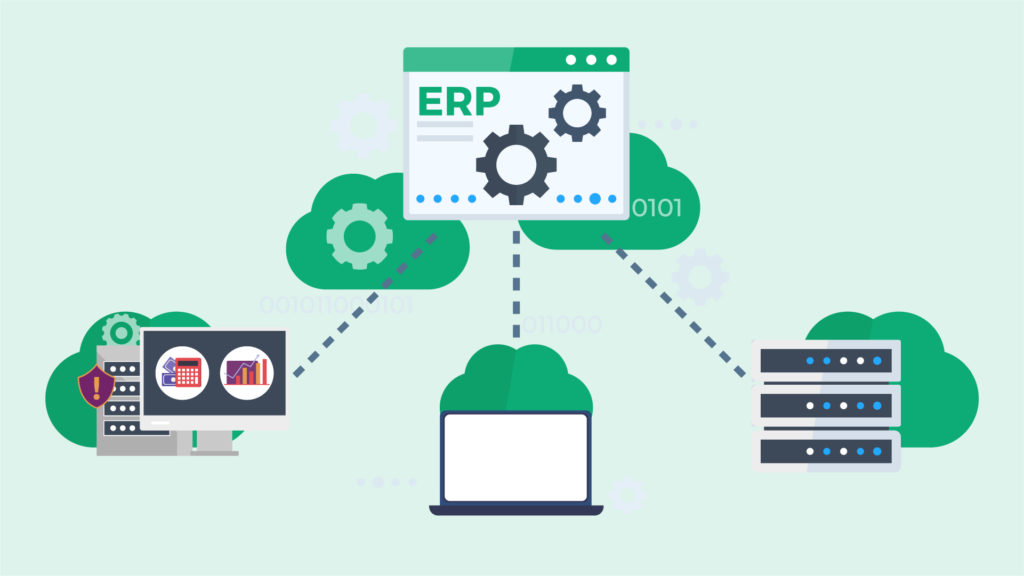
The earliest ERP systems also looked very different from the ones that are on the market today. ERP software was developed as a form of material requirements planning that enabled manufacturers to manage the resources they needed to operate their business. The manufacturing industry is still the number one user of ERP systems, but it’s steadily being implemented by more distributors and those involved with inventory management, supply chain management, procurement, fulfillment, accounting, and financial applications such as payroll and financial reporting.
ERP systems are built for streamlining business processes through automation and creating a single, unified database that houses all financial and operational data. This can dramatically improve monthly as well as ad hoc reporting as business leaders can drill down into their data to uncover important insights used in decision-making. Greater insight and access to information impact virtually every aspect of the business, from profitability to market expansion to operational efficiency.
ERP systems aren’t used solely for accounting and financial applications, but they greatly speed up financial close by eliminating manual data entry and facilitating the collection of financial data reports across various departments.
Modern ERP systems introduce greater levels of control to an organization through centralization, role-based permissions, and documented audit trails, which improve compliance and reduce financial risk.
The Primary Differences (and Similarities) Between CRM and ERP
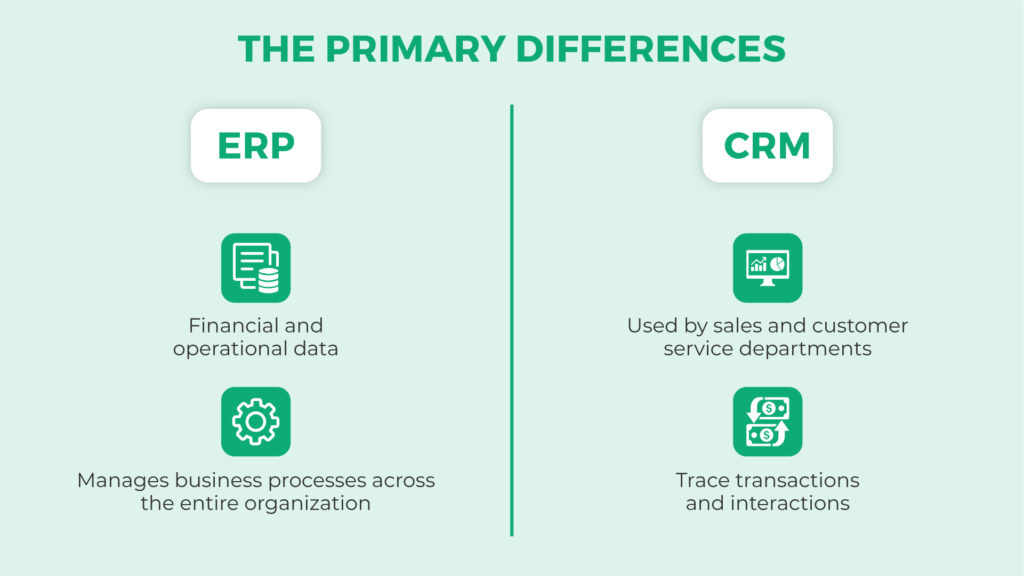
ERP and CRM systems share several characteristics. Both are business applications that store and analyze data within a relational database, and both are delivered on-premises or through a cloud-hosted software-as-a-service (SaaS) model. However, that’s where the similarities end.
The main difference between the two software solutions is their scope. Standalone CRM systems are used almost exclusively by sales and customer service departments and contain only customer data. It’s used purely to manage the customer experience and relationships for either existing or potential customers. ERP may contain a CRM component, but it also contains financial data and operational data across various departments.
Where CRM enables organizations to trace transactions and interactions with their clients, ERP manages business information and processes across the entire organization. ERP consolidates organizational information to focus planning and resource management efforts. This includes not just CRM information but purchasing, inventory, accounting, and HR, among others, in one centralized location.
From the business side, CRM focuses on increasing sales, whereas ERP focuses on increasing total profitability through optimizing all business processes. To reiterate this point, many ERP systems have CRM components or can integrate with other CRMs. This provides business leaders more than just customer automation, but visibility into how customers relate to all other business processes in one true centralized location.
Do I need a CRM, an ERP, or both?
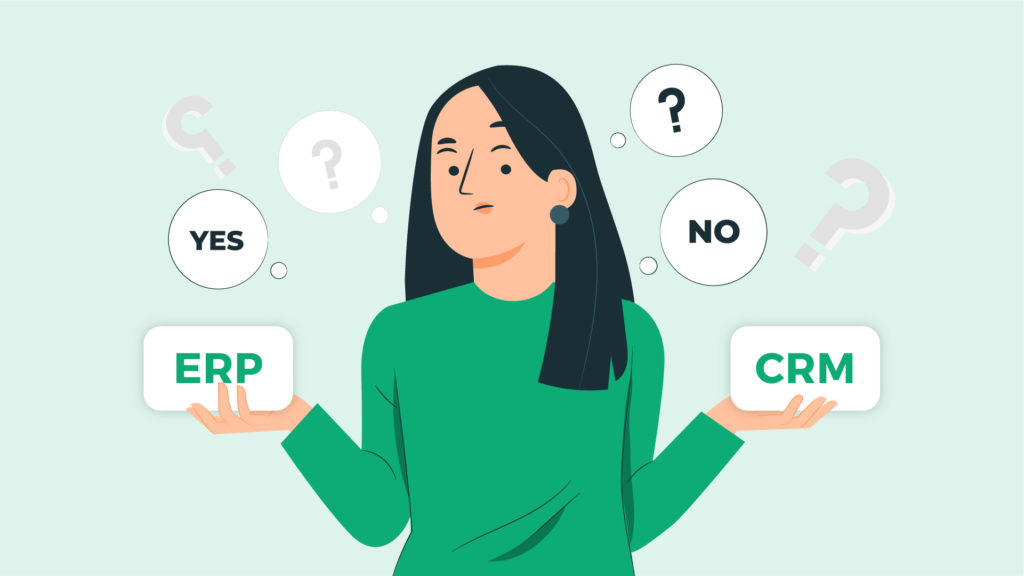
Growing companies will eventually need both a CRM and an ERP system. Many companies switch to an ERP system when they outgrow their entry-level accounting tools due to rapid growth or growth ambitions. The same can be true for implementing a CRM; when a company grows too quickly to maintain the desired level of customer service, it may invest in a CRM software solution.
How you invest in CRM or ERP depends on your business. If you have a few high-value customers on your books but complex manufacturing or financial systems, it’s best to consider investing in an ERP. If you have a straightforward business model and a large customer base that needs frequent support and contact, a CRM may be the better route. That being said, both systems are essential, and it’s a good idea to consider integrating CRM into your ERP system from the start.
By combining your ERP and CRM systems, your organization will gain instant, real-time access to all your information. This combined approach manages customer-related processes, ensures data accuracy, improves employee collaboration (e.g., fulfillment, delivery, customer satisfaction), and streamlines the entire sales process. This will improve business relationships and important business processes that support those relationships.
If you would like to know more about how we can readily integrate your CRM with a modern, future-proof ERP, let us know. We build, launch, and maintain our software directly with our partners through a hands-on, collaborative process that ensures our ERP matches your unique goals.
